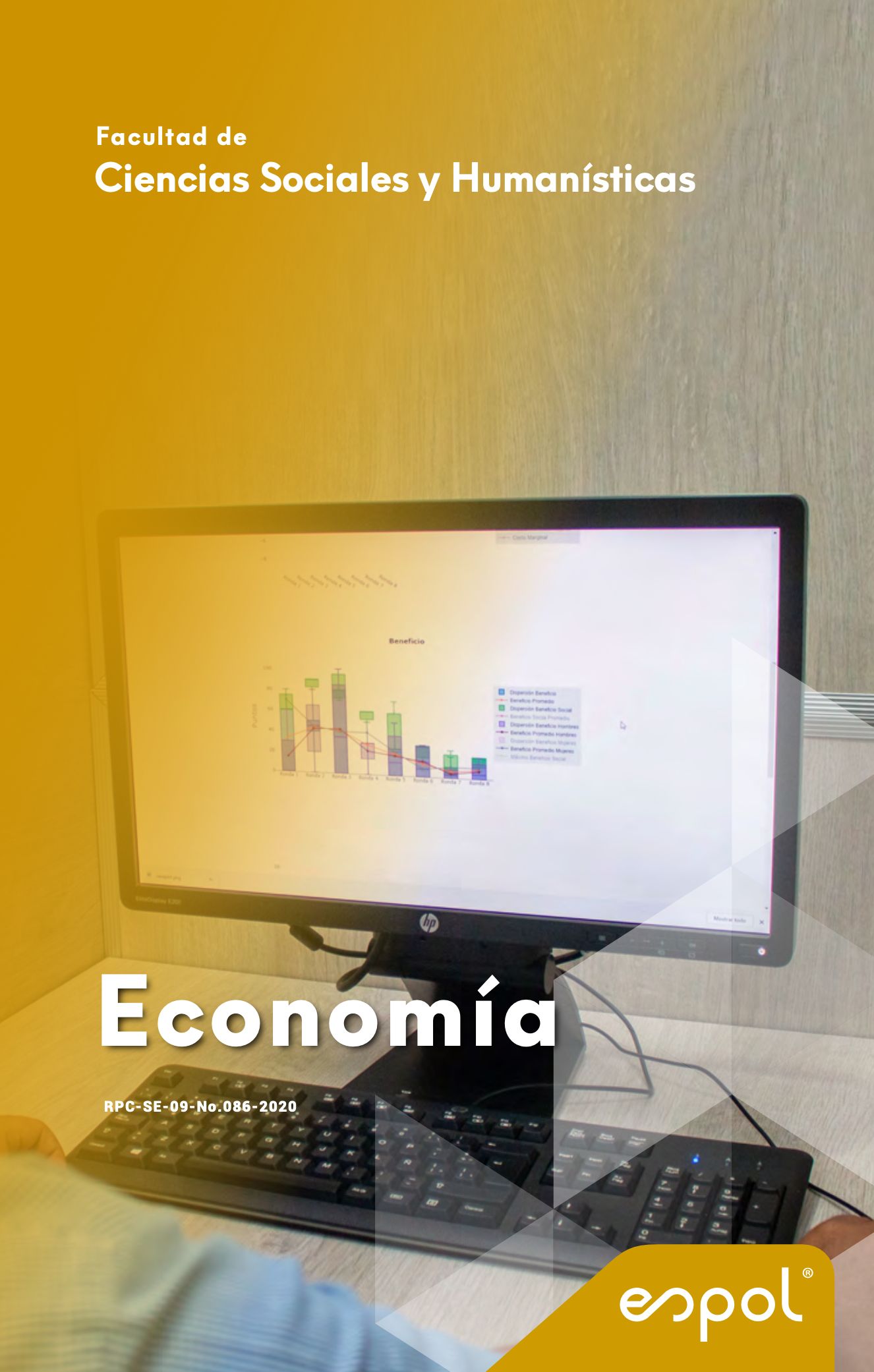
Economics
The program of Economics train comprenhensive proffesionals with relevant knowledge to optimize scarce resources and promote sustanaible development, contributing to the generation of value and reduce uncertainty in the decisión making process in the public or private field.
* Undergraduate tuition/fees:
The Constitution of the Republic of Ecuador in its Article 356, among other principles, establishes that third-level public higher education will be tuition/fees free. Zero cost education is linked to the academic responsibility of the students.
Graphs show the figures in real time, at the time of the query
Must be observant, thoughtful, analytic, with critical thinking, persistant, with a great abstraction capacity and must have basic knowledge of social sciences and mathematics. Furthermore, candidates must be passionate about research and with a curious spirit to know how people behave an the behavior of markets.
- Evaluate the process of Price determination from a perspective of general and partial equilibrium under diferente market structures for the efficient assignation of resources in the macroeconomic field, with social responsability.
- Evaluate the effects of public policies in the economic activity of the country in the local, regional and international context through the use of economic models that allow an efficient decision making process in the macroeconomic field.
- Value the efficient use of resources through the application of theories, models and methods for an optimal decision making process in the business field with social responsability, public sector and financial market.
At the completion of the degree students are prepared to be an enterpreneur, analyze and understand how prices are formed, evaluate the effects of economic policies and evaluate how to use scarce resources.
Occupational Profile
Our graduates are able to develop the following tasks:
- Analysis and monitoring of economical aspects in local and international environments.
- Formulation and execution of pland and public policies in public and private environment.
Graduates can work as:
- Consultants in local and international bodies such as IDB, World Bank and others.
- Director of Research Centers
- Economic analyst in the private and public sector.
- Teacher.
- Risk analyst
- Complete the curriculum
- Complete the internship program according to the degree.
- Deliver the required documentation to update the student file.
The Capstone Project is a culminating requirement for graduation. These projects provide students with the experience of applying acquired knowledge and skills to the needs of society, with a focus on sustainability.
The IDEAR Fair showcases all Capstone projects, offering students a valuable opportunity to showcase their work and hone soft skills such as communication and teamwork. It is also a space for students to network with potential clients and future employers.
Explore all of the Capstone projects completed by the Bachelor in Economics program.

